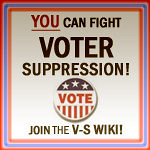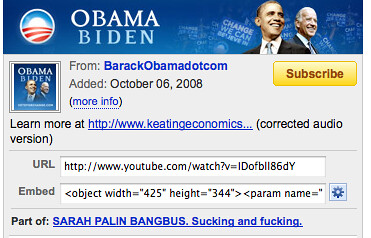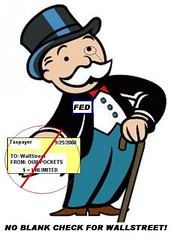Election protection: Techville and Reality City

Welcome to those who have gotten here via my appearance on Meet the Bloggers! The Voter Suppression Wiki is a non-partisan hub of information and action around efforts to suppress votes in the 2008 U.S. elections. For more information, please see our strategy and talking points, Baratunde Thurston’s launch post on Jack and Jill Politics, and my series of posts on Liminal States (most of which are cross-posted on Pam’s House Blend and Oxdown Gazette). If you’d like to get involved, please introduce yourself, check the help wanted, roll up your sleeves, and jump in!
If you’re hear to watch me, Brad Friedman and James Rucker on Meet the Bloggers, the video is at the end of the post.
If you’d like to help fight voter suppression, please get involved!
One of the things we’ve talked a lot about with the Voter Suppression Wiki is the importance of looking at bridging the gap from the online to the offline community. A good way of understanding this is by imagining two congressional districts: Techville and Reality City.
Techville is relatively affluent, mostly-white, and as the name implies, a high-tech hotbed. “Everybody” uses Twitter, FriendFeed, LinkedIn, and a whole bunch of cool web 2.0 thingies I’ve never heard of — as my brother Gregory K would say, they’re pretty well connected. Their local election board is well-funded and very proactive; they’ve got a great training program for election-day pollworkers, and many local high-tech companies encourage their employees to take the day off to volunteer.
Reality City, by contrast, is poorer, with a lot of minorities and Spanish speakers, and several large retirement communities. It’s on the “wrong side of the digital divide”, so while there are some highly-wired residents (especially students), computer usage in general is low. Just like everywhere else in America, people are fired up about the election, and so registration has surged. Unfortunately, there’s no money, so there aren’t enough voting machines to go around; and they haven’t been able to hire enough staff to validate all the registrations or find enough volunteers for election day.
Voter suppression is almost certainly likely to be more of a problem in Reality City than Techville; and so from an election protection perspective, that’s where we’d like to focus our efforts. In practice, though, an online focus risks doing exactly the opposite.
 Today Blue America, with our partners at
Today Blue America, with our partners at 
 I think I’ll let others tell the story for me …
I think I’ll let others tell the story for me …

 Executive summary
Executive summary